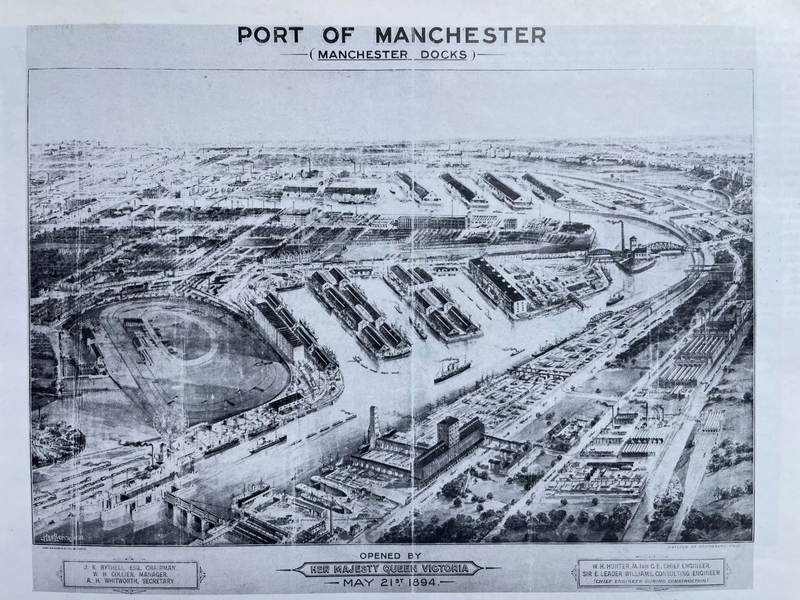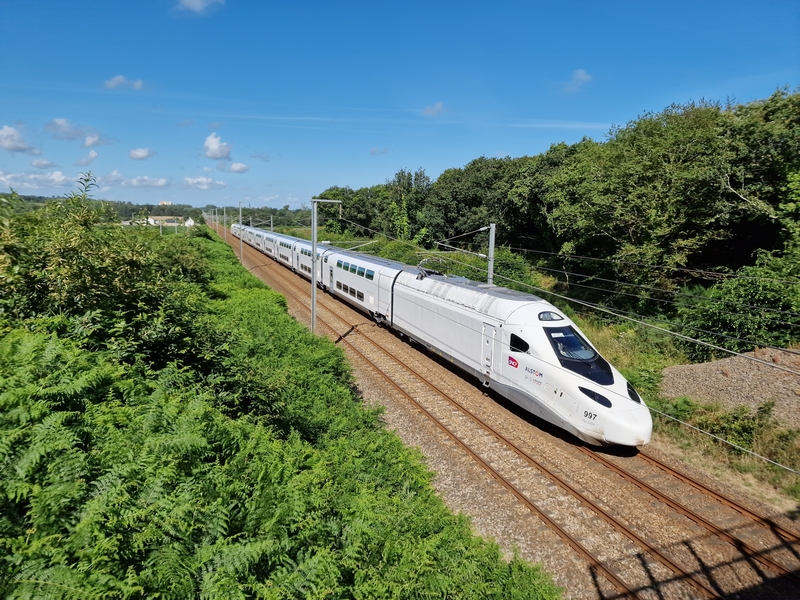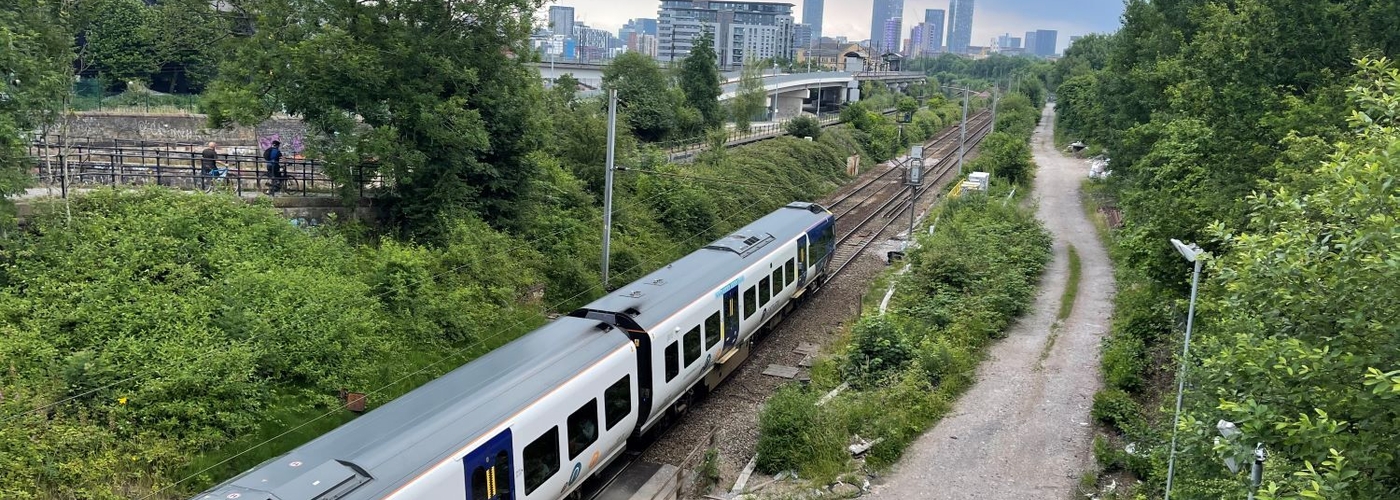No need to be handheld by Government, let's get on with it ourselves
The total balls-up by the Government over HS2 remains an open sore for the north of England and Conservative Party ideas for levelling up. It's historically illiterate as well.
It’s no coincidence all the main northern towns and cities, everyone of them, grew, often exponentially, though pioneering infrastructure allied to pioneering technologies applied to industry.
There couldn’t have been one without the other. The Industrial Revolution needed two firm legs on which to stand. Without canals and railways all the novel industrial techniques being developed wouldn’t have had anywhere near the reach, literally.
What’s significant here is that the city regions are trying to find solutions for themselves and getting on with it
For Rishi Sunak when he cancelled the northern leg of HS2 during last year’s Conservative Party conference these considerations mattered less than the political capital he could gain from his own party members. Nor did he bother about the offensive optics of him stamping on this bit of HS2 in a former railway station in Manchester, the oldest railway city in the world.
Sunak said the money saved would be deflected to other northern infrastructure initiatives but he was award-winningly vague on delivery times. Even with those schemes he did mention they started to derail quickly given the two Manchester tram extensions he highlighted had already been built. Hats off though, that is a really cunning way to lower future costs, include things already completed.
As Jennifer Williams, the Financial Times’ Northern Correspondent, described shortly after: ‘Sunak said some of the projects he had announced were merely “illustrative”. Mere transport vibes, if you will. A gobsmacked local government contact objected to the constant improvisation: “I love jazz, but not in a policy development sense.”’
'Illustrative' politics are just the best.
Back to those old days when Whitehall was not involved in the financing. The Northern and Midland cities did it for themselves, or rather their business people did when it came to infrastructure: although it was the City of Manchester (then Manchester Corporation) which alone financed Manchester Ship Canal, Britain's largest nineteenth century civil engineering project.

Something's brewing in 2024 it seems.
The Mayor of the West Midlands, Andy Street, and the Mayor of Greater Manchester, Andy Burnham, are pursuing various ideas for a sort of HS2 mark two, one without the noose of Whitehall's biased cost benefit analysis tight around their necks.
This week, again, the mayors underlined the vital need to increase rail capacity between the two city regions to boost the economies of both, and those, generally, of the Midlands and the North. The West Coast mainline is at present congested and a byword for overcrowding, delays and inefficiencies. More services are urgently required.
There are three proposals.
The existing West Coast mainline could be enhanced to relieve problems in the worst areas.
Rail bypasses could be constructed between, say Stockport and Crewe, along with upgrades to the existing route.
The best solution but obviously by far the costliest would be construction of a new rail line for passengers between Manchester and Birmingham. Freight could then travel on the existing line.
But who would pay?
The idea is for the cash to come from a combination of public and private money and ongoing talks are taking place with Mark Harper the Government’s Transport Secretary.
However, Andy Burnham has argued that many of rail schemes across the planet including the expansion of France’s TGV have been mainly funded privately.
As reported in Business Desk he said: “Sceptical MPs really should look up some of what’s been done in other parts of the world where infrastructure has been delivered successfully in a less costly way than the original HS2 and where the private sector has played a considerable role in taking the risk off the public sector. This is not unrealistic or pie in the sky. There are plenty of examples.” Ongoing talks are taking place with Mark Harper the Government’s Transport Secretary.

What’s significant here is that the city regions are trying to find solutions for themselves, with or without governmental assistance, and getting on with it (the City of Birmingham's bankruptcy aside). The Sunak administration doesn’t seem capable of seeing the big picture when it comes to connectivity between north and south in England and then onto Scotland.
Unfortunately nor does Sir Keir Starmer of Labour seem sufficiently engaged; he is displaying disturbing signs of the centrism which has too often complicated and blighted his party's relationship with the regions, especially the former industrial ones, despite Labour complacently expecting their support when getting elected.
That back-fired in 2019 but the leader was Jeremy Corbyn, the useless chocolate teapot of politics when it comes to winning elections. Starmer is credible but he can't assume 'red wall' support, he has to prove he isn't just another Metropolitan centrist who says thanks for the votes.
That aside, getting on with it, dancing to one’s own tune seems the way forward for the regions, no deference or arrogance but a desire to get things moving. To be fair to Manchester it's not been shy in coming forward for itself but this entente between the West Midlands and Greater Manchester is refreshing. Maybe get Steve Rotheram of Merseyside in on the meetings.
Either way, let’s hope Street and Burnham are fully committed to taking things on.
The past tells us that when there's no other choice you don’t even ask for government support. Of course, things were different back then and the North and Midlands were in their industrial heyday but the example of self-help is still potent. In these matters it is good for local governance to be assertive, confident and not cap in hand.
What’s clear is these improvements to infrastructure must be top of the list when it comes to lifting the regional economies for any credible party of government.
Jonathan Schofield @jonathschofield
Get the latest news to your inbox
Get the latest food & drink news and exclusive offers by email by signing up to our mailing list. This is one of the ways that Confidentials remains free to our readers and by signing up you help support our high quality, impartial and knowledgable writers. Thank you!

Join our WhatsApp group
You can also get regular updates on news, exclusives and offers by joining the Manchester Confidential WhatsApp group.

















